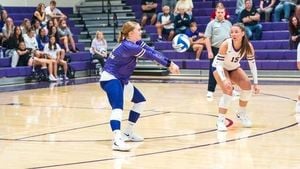The U.S. Supreme Court is preparing to hear one of the most consequential cases concerning education and religious freedom, as it considers whether states can allow publicly funded religious charter schools. This debate is centered around St. Isidore of Seville Catholic Virtual School, which aims to become the first religious charter school in the United States, facing opposition from Oklahoma's state attorney general.
The legal battle began when the Oklahoma Statewide Virtual Charter School Board initially approved the school's charter application. Oklahoma Attorney General Gentner Drummond challenged this decision, arguing it violated both state and federal laws prohibiting government funding of religious institutions. The state Supreme Court ruled against the charter school, citing the principle of separation of church and state embedded within the First Amendment.
This ruling has not only halted St. Isidore's plans but has opened up broader discussions on the nature of public education and the funding of religious organizations. According to the Oklahoma Supreme Court, the classification of charter schools as public schools means allowing religious charter schools equates to the government funding religious education.
Thomas B. Fordham Institute President Mike Petrilli weighed in on the matter, commenting, "The question for the Court is whether states… must allow religious charter schools, too." He suggested, based on recent court precedents, it seems likely the Supreme Court will favor the establishment of religious charter schools.
Echoing Petrilli’s sentiments, Andy Smarick from the Manhattan Institute described faith-based chartering as one of the most intriguing school-policy issues. He stated, "It forces us to reckon with peculiar but foundational education choices made by officials 150 years ago. It goes to the heart of American pluralism, localism, and civil society." He contended the recognition of religious charter schools could be beneficial to the educational framework within the U.S.
The St. Isidore case also features opinions from political figures supporting the charter school initiative. Oklahoma Governor Kevin Stitt and other religious freedom groups have rallied behind the appeal, arguing against the Supreme Court's blocking of the school. They view this ruling as detrimental to the charter-school movement, claiming it threatens students' rights to choose faith-based education.
Despite the backing from influential political figures, some within the charter school community, such as the National Alliance for Public Charter Schools, have expressed concerns. They filed an amicus brief urging the Supreme Court not to grant the appeal, underscoring their commitment to maintaining the separation of church and state. Starlee Coleman, President and CEO of the National Alliance, released a recent statement emphasizing, "Charter schools are public schools that are part of states’ public-school systems. Like all public schools, charter schools are bound by the U.S. Constitution and are therefore not allowed to be religious schools. We agree with the Oklahoma Supreme Court’s June 25, 2024 decision that affirmed the unconstitutionality of religious public schools."
This case is part of a larger national conversation about educational choice, funding, and religious freedom, particularly as it pertains to the efficacy of charter schools across the country. Proponents argue such schools can provide beneficial alternatives, especially for underserved populations. Still, critics counter with concerns about funding allocations and the potential diversion of resources from traditional public schools.
The Supreme Court's decision, anticipated by early summer, could redefine the boundaries between church and state, establishing new precedents for the involvement of religious institutions within publicly funded educational frameworks. Legal experts are monitoring this case closely, noting its potential to influence how states approach the ambiguity surrounding charter schools and public funds.
Whether the Court will allow this unprecedented religious charter alternative will likely hinge on interpretations of existing laws governing public education and religious rights. The outcome may set significant precedent for future cases across the nation, illustrating the complex interplay between education, law, and religion.
Supporters and critics alike are bracing for the Court's ruling, which could either open the gates for similar institutions nationwide or reinforce the notion of separation of church and state within public education settings. Whatever the decision may be, the discussions leading up to it reflect deep societal values about education access, religious freedom, and governmental roles.



